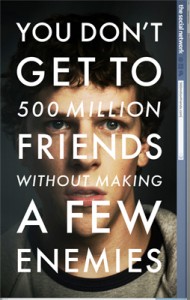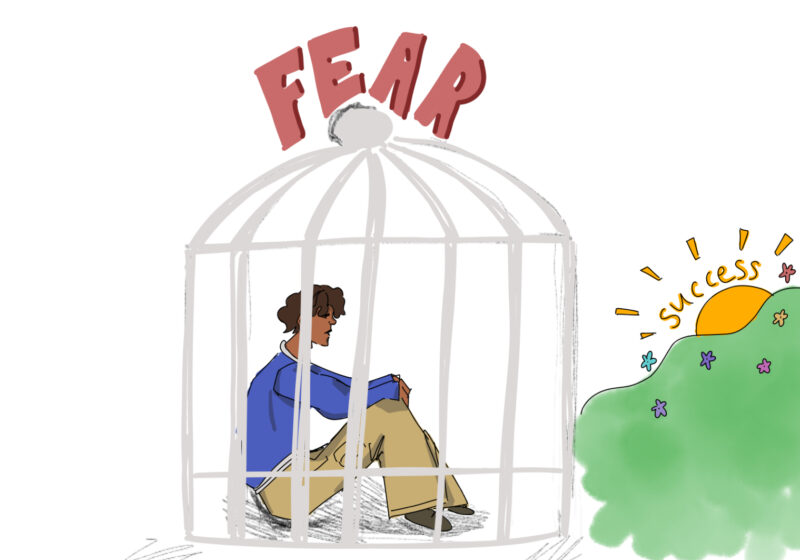
Jesse Eisenberg has already gotten oscar buzz over his performance in the recent hit, "The Social Network."
I’m willing to take Mark Zuckerberg’s word that the events behind the founding of Facebook weren’t nearly as dramatic as portrayed in “The Social Network.” Most college students can only dream of speaking with the reckless wit of Aaron Sorkin’s screenplay, let alone finding themselves entwined in a digital-age “There Will Be Blood.”
But, after the film’s accuracy was a topic of dispute for months, the finished product makes concerns about “the truth” completely irrelevant. “The Social Network” is rich with emotional truths — it extracts so much exhilaration and haunting profundity from its source that it towers as a miraculous story in its own right.
“The Social Network” cuts between the website’s brisk genesis at Harvard and the subsequent legal wrangling that followed — it doesn’t mean to just shake our perceptions of how the website was created, but also why. Director David Fincher has crafted superb films based on social misfits and destructive obsessions, and he’s now created another uncanny masterwork from a most unlikely source.
Mark Zuckerberg, the world’s youngest billionaire and poster boy for all that’s amazing and terrible about digital communication, is introduced as a case of social interaction gone irreparably wrong.
In the film’s opening scene, Harvard sophomore Mark Zuckerberg (Jesse Eisenberg) makes a date with his Boston University girlfriend Erica (Rooney Mara) go from awkward to self-destructive at rapid-fire speed. He tosses off scatterbrained conversational threads, descends into socially inadequate paranoia and then instinctively belittles Erica when she finally stops trying to keep up with him.
She dumps him with a line that he, quite understandably, will never forget: “You’re going to go through life thinking that girls don’t like you because you’re a nerd. And I want you to know, from the bottom of my heart, that that won’t be true. It’ll be because you’re an asshole.”
His response, after a harrowing walk through the darkened Harvard campus, is to create Facemash, a site where people vote on the relative hotness of Harvard’s female undergrads (his original idea was to compare the girls’ photos to farm animals).
The blitzkrieg Facemash sequence, in which Zuckerberg drunkenly plows through an expert amount of hacking and coding, is the only scene to feature internal monologue from Zuckerberg, and Eisenberg’s mile-a-minute voiceover is a brief, stunning example of how Zuckerberg’s mind can churn at a level no one else comprehends, focus on a task with impenetrable nerve and reduce peers to mere means of getting what he wants.
The Facemash stunts earns him academic probation and widespread female resentment, which is a small price to pay for the massive attention he also earns, especially from Divya Narendra (Max Minghella) and the almost comically perfect twins Tyler and Cameron Winklevoss (both played by Armie Hammer) — fellow Harvard students who want to enlist him for a Harvard-exclusive social network site they’re planning. Zuckerburg accepts, and recruits his loyal-to-a-fault best friend Eduardo Saverin (Andrew Garfield, almost guaranteed a Best Supporting Actor nomination).
Zuckerberg secretly picks away at Facebook in his dorm room and launches it with Saverin as its “CFO”; Divya and the Winklevosses immediately start considering the most severe way to nail Zuckerberg for intellectual property theft. What follows is a mix of familiar stories — Facebook’s wildfire launch, the involvement of Napster founder Sean Parker (Justin Timberlake, great at cool braggadocio) and eventual global domination — and frenzied disputes about everything in between.
Sorkin has always been a master at making lengthy passages of dialogue flow like heart-racing action, and Fincher’s direction makes the verbal warfare even more captivating, perfectly balancing Facebook’s hot-trend rise with its ugly legal consequences. “The Social Network” is outstanding entertainment, but repeat viewings make the story even more complex. This is a rare story where nobody is exactly innocent or guilty — it’s a story built on miscommuncation and shattered relationships, so although it initially seems clear who is right and wrong, every character’s motivations are worthy of second-guessing.
The biggest factor in the film’s endlessly fascinating ambiguity is Eisenberg, who takes a quantum leap from his previous awkward-nerd roles to deliver one of the most intricate character studies in several years of film. I’ve heard some viewers describe this Zuckerberg character as an all-too-intelligent asshole, a lonely soul worthy of sympathy and as an adolescent, geek-tastic version of evil incarnate.
What’s so great about Eisenberg is that he makes all of those assessments seem accurate, but it’s impossible to tell which is really the case.
Zuckerberg mostly seems like your typical outcast who dreams of someday doing something to one-up his perceived social superiors. That keeps even his most heartless actions — and the terrifying, hollowed-out stare he brings out when he’s angry — rooted in the shell of a lonely nerd who just wanted to prove himself.
“The Social Network” argues that Facebook isn’t really about connecting with other people. It’s the Internet’s savviest way of secretly feeding into our resentment and jealousy towards peers — in princple, basically a much more sophisticated version of Zuckerberg’s cruel Facemash prank. It seems ironic that the Web’s most powerful social networking site would come from a friendless social reject, but “The Social Network” proves that only a person in such a lonely disposition could imagine such an empire of disconnect.
And the mournful final scene, with Zuckerberg left alone in a room clicking away at his own creation, begs the film’s most disturbing question: Zuckerberg’s idea might have changed the world, but who, exactly, has benefitted from it?
Grade: A+
Silverstein is a member of the class of 2013.






